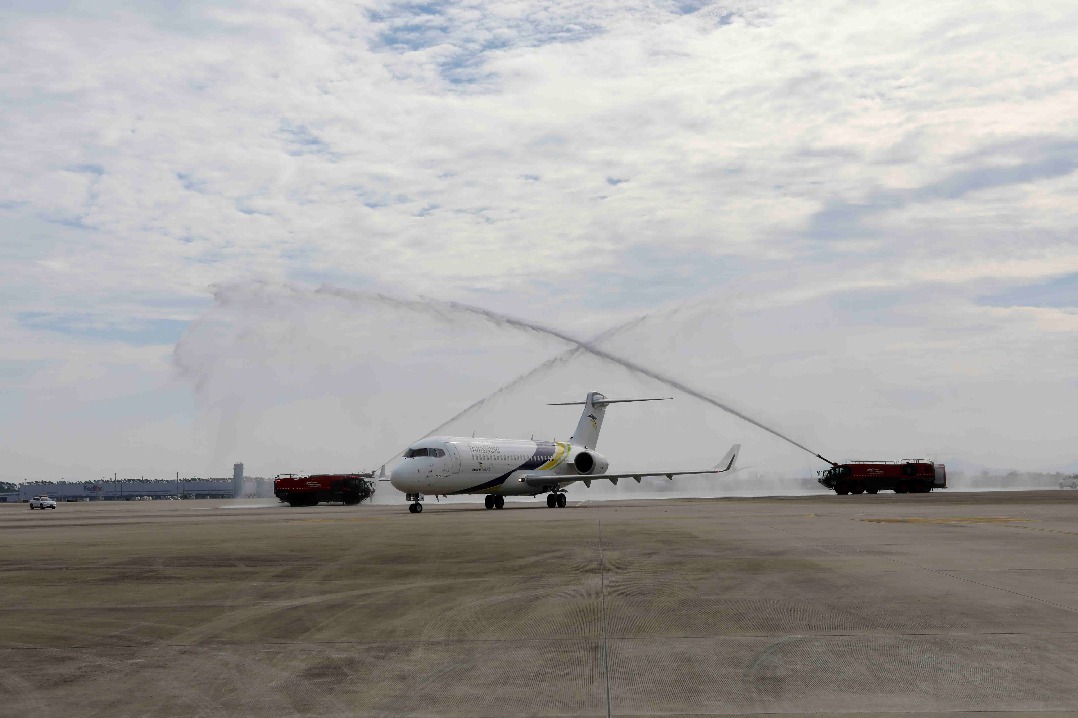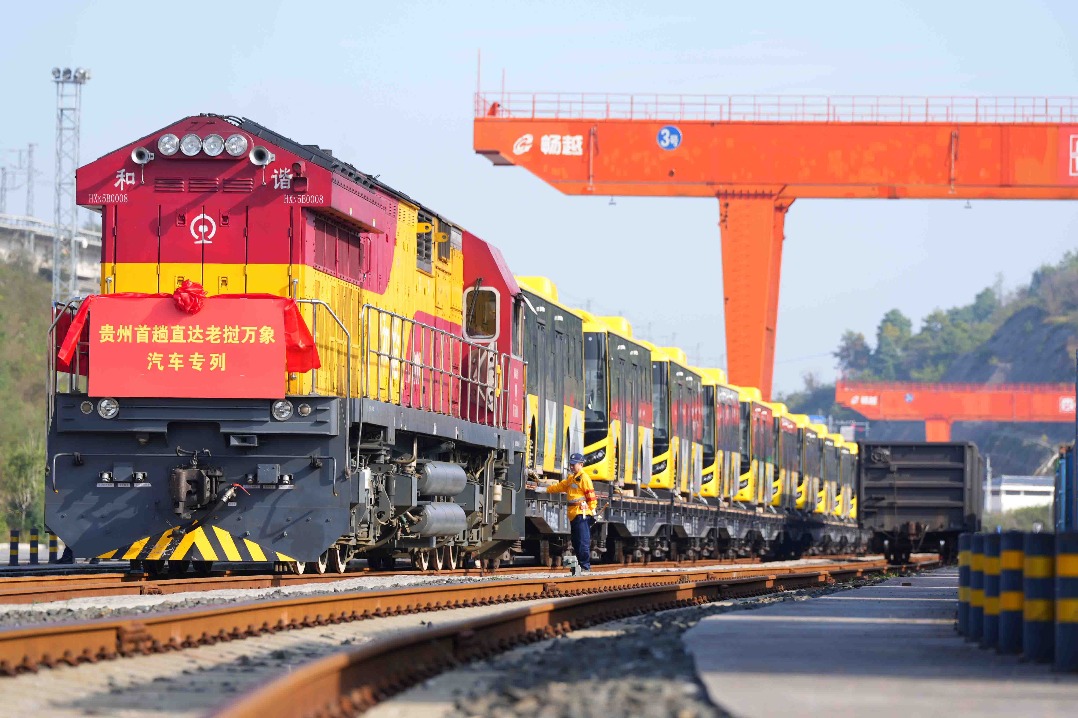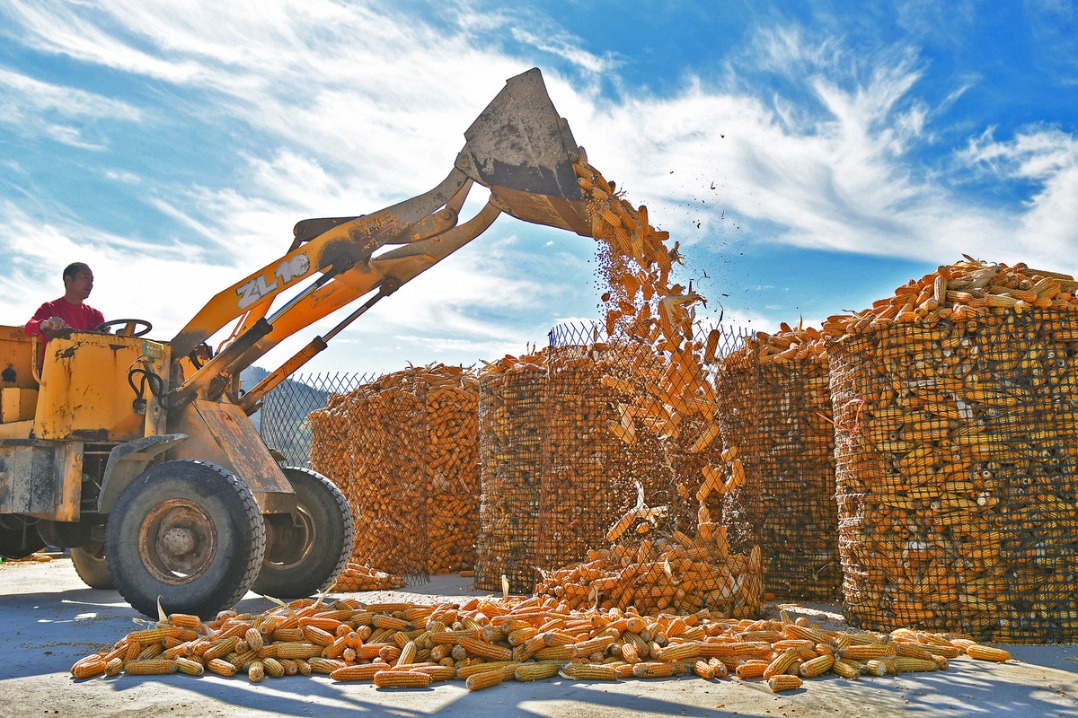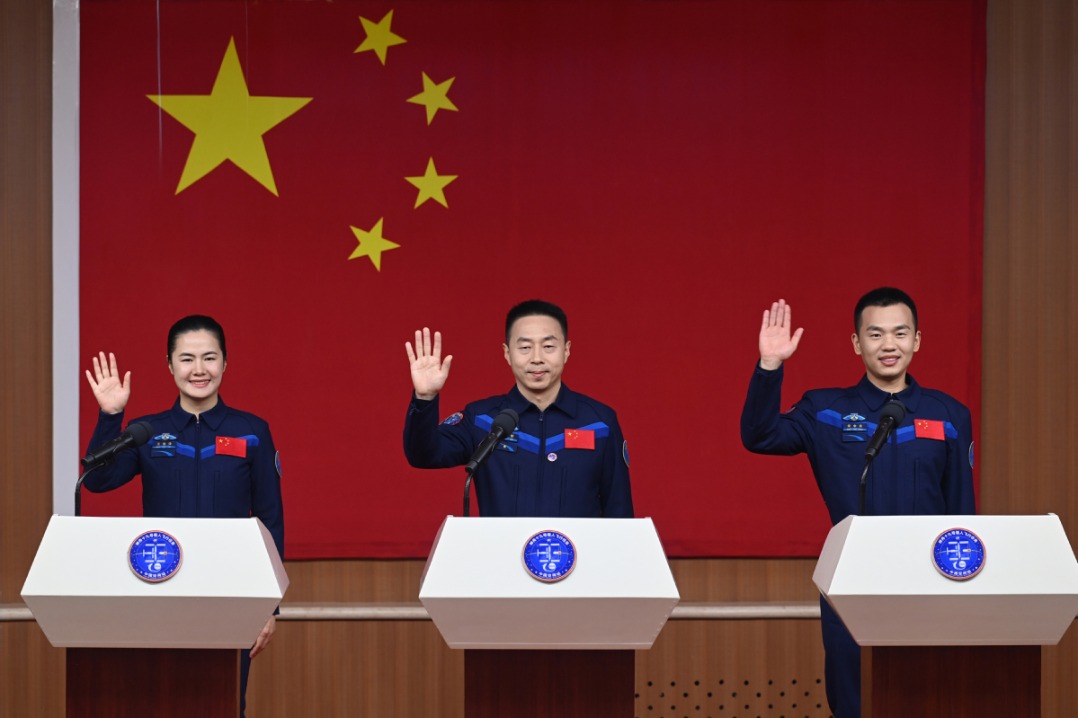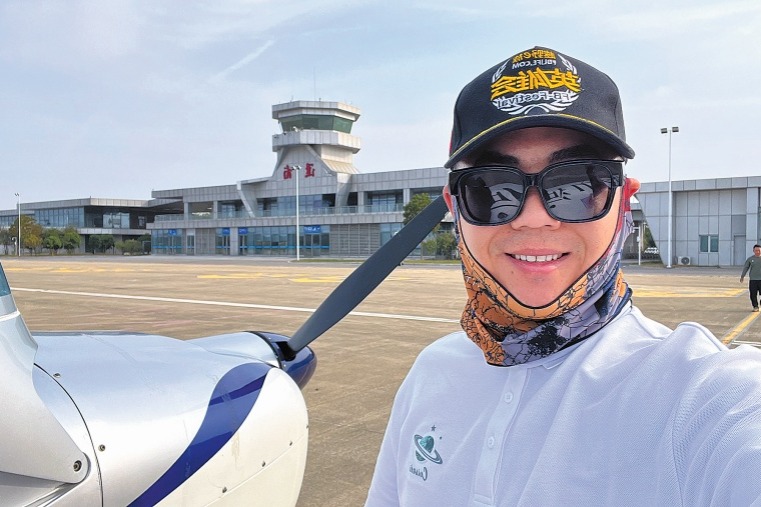Tiangong space station to welcome new inhabitants

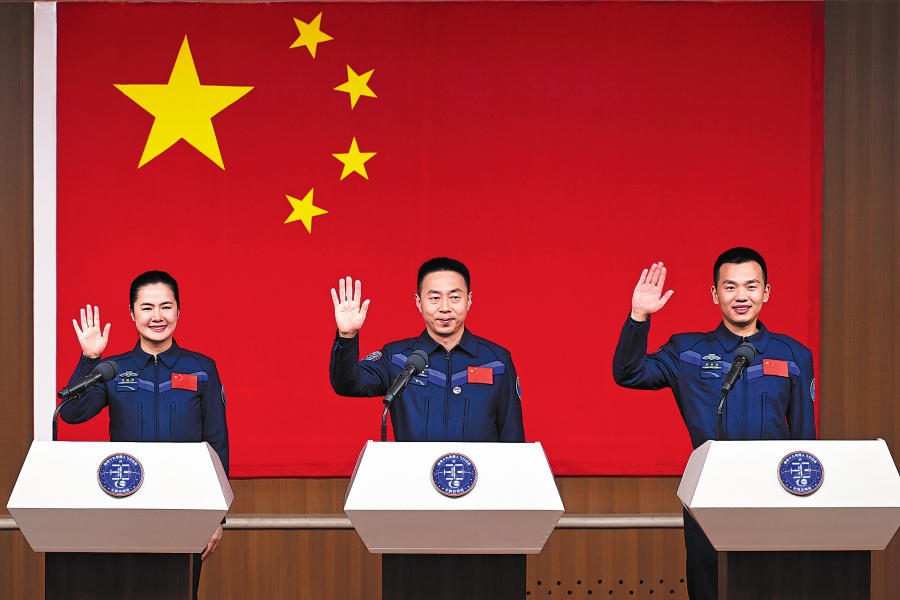
China's Shenzhou XIX crew members are set to begin half a year of living aboard the Tiangong space station, as the country's 14th manned spaceflight was scheduled to launch early Wednesday morning.
Lin Xiqiang, deputy director of the China Manned Space Agency, said at a news conference on Tuesday morning at the Jiuquan Satellite Launch Center in northwestern China that the three crew members — mission commander Senior Colonel Cai Xuzhe, Lieutenant Colonel Song Lingdong and Lieutenant Colonel Wang Haoze — will be onboard the Shenzhou XIX spaceship.
A Long March 2F carrier rocket was scheduled to take off with the spaceship at 4:27 am on Wednesday from the Jiuquan spaceport in the Gobi Desert. The three astronauts will later replace the Shenzhou XVIII crew aboard Tiangong.
Cai was part of the six-month Shenzhou XIV mission, which lasted from June 2022 to December that year. The flight will be the first journey in space for Song and Wang.
Notably, Wang will be the third Chinese woman to fly into space, after Liu Yang and Wang Yaping, and the first female spaceflight engineer. Zhu Yangzhu, a male astronaut who took part in the Shenzhou XVI mission, was China's first spaceflight engineer.
Wang Haoze is also the only woman in the country's third generation of astronauts. The 18 third-generation astronauts were selected in September 2020 from about 2,500 applicants and announced in October 2020.
Before joining the astronaut team, Wang was a senior researcher at the Academy of Aerospace Propulsion Technology, a subsidiary of the State-owned conglomerate China Aerospace Science and Technology Corp.
Lin said that "after the Shenzhou XIX spacecraft enters its preset orbital position, it will activate the rapid rendezvous-docking mode and use about six-and-a-half hours to approach and connect with the front port of the Tianhe core module".
Orbiting about 400 kilometers above Earth, the Tiangong has three permanent components — the Tianhe core module and Wentian and Mengtian science lab modules — and is currently connected with two visiting craft, the Shenzhou XVIII crew ship and the Tianzhou 7 cargo ship. It is one of the largest and most complex structures ever established in space.
The Shenzhou XIX team will take over the massive orbital outpost from their peers in the Shenzhou XVIII — mission commander Senior Colonel Ye Guangfu and crew members Lieutenant Colonel Li Cong and Lieutenant Colonel Li Guangsu — who arrived on April 26 and have been in orbit for six months.
The two groups will work together for about four days for the handover process, and then the Shenzhou XVIII astronauts will depart and fly back to Earth on Monday, according to Lin.
The Shenzhou XIX team will be the eighth group of astronauts to inhabit Tiangong, which was completed in late 2022.
Lin said the Shenzhou XIX crew will perform a host of tasks, including carrying out scientific experiments and technological demonstrations, conducting spacewalks to install space debris shield equipment and other external devices, retrieving instruments from outside the space station, and giving science lectures.
Their work will be related to multiple research disciplines such as microgravity physics, material science, space medicine, spacecraft technology and life sciences, he said, adding that the team is scheduled to return to Earth in late April or early May.
Lunar exploration
Responding to questions on China's crewed lunar exploration plan, Lin said that Chinese scientists and engineers have been conducting comprehensive research and development of the Long March 10 heavy-lift carrier rocket, the Mengzhou crew spaceship and the Lanyue lunar lander, as well as other hardware necessary for a manned mission to the moon.
He noted that his agency has given contracts for two design concepts for the crewed lunar rover, developed separately by the Shanghai Academy of Spaceflight Technology and the China Academy of Space Technology, and will conduct evaluations and tests of the prototypes to make the final choice.
Cargo mission
In another development, Lin said at the news conference that the launch of Tianzhou 8, China's next cargo mission to the Tiangong space station, has been rescheduled to mid-November.
The official said the rearrangement was made by mission headquarters after considering the impact of Super Typhoon Yagi. The storm wreaked havoc in September in Hainan province, which is home to the Wenchang Space Launch Center.
The original launch was scheduled to take place before the Shenzhou XIX mission, Lin's office previously said.
The pre-launch preparations for Tianzhou 8 have been proceeding according to the new plan, the official said, noting that there currently are sufficient daily living and work supplies onboard the space station, because a scenario such as the postponement had been considered when making plans.
According to Lin, although workers at the Wenchang spaceport had tried their best to prepare for the typhoon, the storm had caused some damage to the center's launch and living facilities.
After the typhoon, they immediately began to restore damaged equipment and made all-out recovery efforts, he said.
zhaolei@chinadaily.com.cn
















